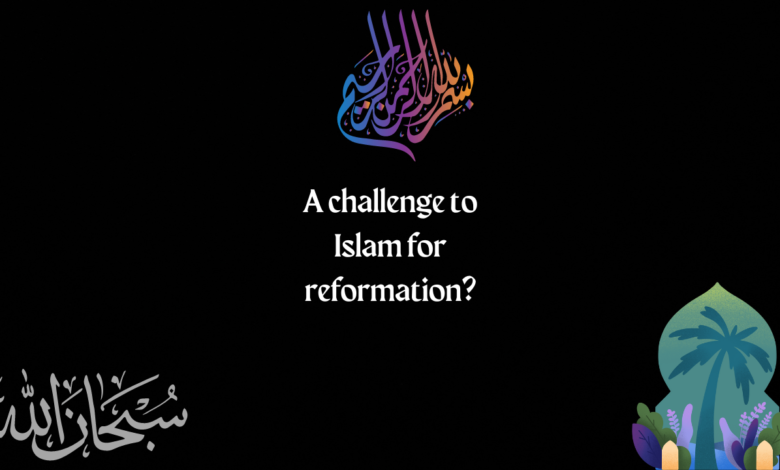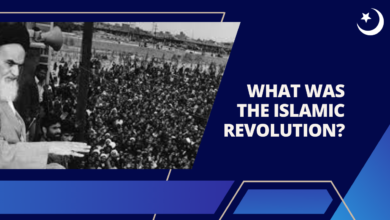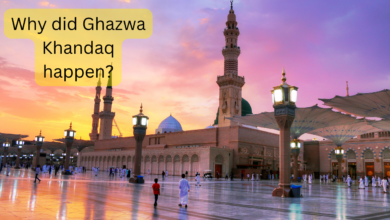A challenge to Islam for reformation?

Introduction
Islam, like all major world religions, has been shaped by centuries of cultural, social, and historical influences. With an estimated 1.9 billion adherents, it stands as one of the world’s most influential belief systems. Yet, in the modern era, Islam has faced a unique challenge – the call for reformation. Advocates argue that a reformation within Islam is essential to address pressing contemporary issues, promote tolerance, and integrate into the globalized world. However, the journey towards reformation in Islam is a complex and delicate task, as it involves reconciling tradition with the demands of the modern world.
Understanding Reformation
Reformation within a religious context refers to a process of change and renewal aimed at adapting traditional beliefs, practices, and structures to contemporary realities. In the case of Islam, proponents of reformation emphasize the need to reinterpret Islamic teachings in light of modern values such as human rights, gender equality, and religious freedom. This movement seeks to challenge outdated practices and interpretations, fostering a more inclusive, tolerant, and open form of Islam.
Challenges to Reformation
Tradition and Authenticity: One of the fundamental challenges in reforming Islam lies in the tension between preserving the authenticity of the religion and adapting it to contemporary values. Critics argue that altering traditional interpretations could dilute the faith’s core teachings, leading to fragmentation and loss of identity.
Conservatism and Resistance: Many conservative elements within the Islamic community view reformation as a threat to the integrity of the faith. They fear that reinterpretation may undermine the traditional authority of religious scholars and lead to a loss of moral values. This resistance can impede efforts to bring about meaningful change.
Cultural Diversity: Islam is practiced across a wide range of cultures and regions, each with its own unique interpretation and practices. Implementing a universal reformation could be challenging due to the diverse cultural contexts and varying levels of readiness for change.
Geopolitical Factors: Geopolitical considerations often intertwine with religious dynamics. Political interests may either fuel or suppress calls for reformation within Islamic societies, depending on the agendas of various governments and external actors.
Interpretation and Authority: Determining who has the authority to reinterpret Islamic teachings is a complex issue. The Sunni-Shia divide, different schools of jurisprudence, and local religious leaders all contribute to a complex landscape where consensus on reformation can be difficult to achieve.
Gender Equality and Human Rights: Issues surrounding women’s rights, gender equality, and religious freedom have become focal points in discussions about Islamic reformation. Aligning these values with traditional interpretations of Islam presents a significant challenge.
The Way Forward
The challenge of reformation in Islam is not insurmountable. It requires a delicate balance between tradition and modernity, as well as a comprehensive approach that acknowledges the diverse cultural and regional variations within the Muslim world. Several strategies could facilitate a constructive path forward:
Inclusive Dialogue: Engaging scholars, theologians, and thinkers from diverse backgrounds in open discussions can help create a more inclusive and nuanced understanding of Islamic teachings. This dialogue can foster mutual respect and provide a platform for collaborative reformation efforts.
Educational Reform: Reformation necessitates widespread education about the true principles of Islam and its compatibility with modern values. Encouraging critical thinking and providing accurate information can empower individuals to challenge outdated practices and interpretations.
Empowerment of Women: Promoting gender equality within Islamic contexts is crucial for a comprehensive reformation. Empowering women to actively participate in religious, social, and political spheres can reshape traditional power dynamics.
Community-Led Initiatives: Grassroots efforts that focus on addressing local challenges can contribute to broader reformation. Communities can identify specific issues that require adaptation while respecting the core principles of the faith.
Engagement with Modern Sciences: Embracing modern scientific and ethical advancements can help reframe Islamic teachings in a way that resonates with contemporary realities. This approach can highlight the compatibility of Islam with progress and innovation.
Conclusion
The challenge of reformation in Islam presents an opportunity to bridge the gap between tradition and modernity, fostering a more inclusive and adaptable faith. While the journey is fraught with complexities, embracing change while preserving the core values of Islam can lead to a more harmonious relationship between the faith and the demands of the modern world. By acknowledging the diversity within Islamic societies and engaging in thoughtful dialogue, the quest for reformation can pave the way for a more enlightened and tolerant future for Islam and its followers.
Frequently Asked Questions (FAQs) about the Challenge for Reformation in Islam
What is the challenge for reformation in Islam?
The challenge for reformation in Islam refers to the call for introspection and change within the Islamic faith to adapt to modern times. It aims to address issues related to interpretation, practices, and cultural relevance, with the goal of fostering a more inclusive, tolerant, and adaptable Islamic community.
Why is there a need for reform in Islam?
The need for reform arises from the belief that some traditional interpretations and practices within Islam might not align with contemporary values and realities. Reformation seeks to address this gap by encouraging critical thinking, revisiting interpretations, and adapting religious teachings to present-day contexts.
Does reformation mean changing the core beliefs of Islam?
No, reformation does not necessarily entail changing the core beliefs of Islam. It involves reevaluating how these beliefs are understood and applied, taking into account historical context, new knowledge, and changing societal norms while maintaining the fundamental principles of the faith.
Who is advocating for the reformation of Islam?
Advocates for Islamic reformation can include scholars, religious leaders, activists, and community members who believe that Islam should be open to reinterpretation and adaptation. Some scholars argue for a contextual and progressive understanding of Islamic teachings.
What aspects of Islam are targeted for reform?
Reform efforts might target various aspects, including gender equality, human rights, religious freedom, interfaith dialogue, and separation of religion and state. Additionally, there might be discussions about the role of women in society, the treatment of minorities, and the integration of scientific advancements.
How do traditionalists view the challenge for reformation?
Traditionalists may view the challenge for reformation with skepticism, fearing that it could lead to the dilution of Islamic values and practices. They might argue for the preservation of traditional interpretations and practices as they’ve been understood historically.






